Section 2 | Fish Health Management
Industry
Page 07 /
Health Management and Fish Health Records
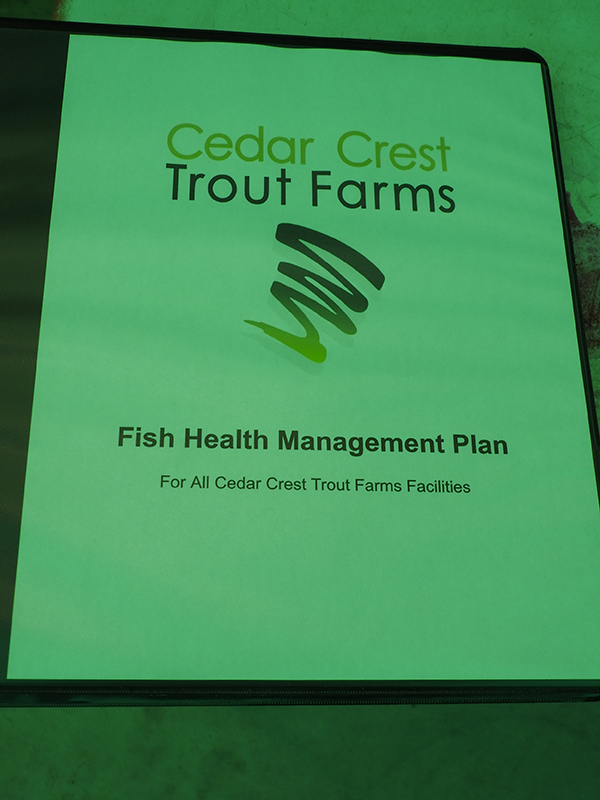
Source: ACER Consulting Ltd.
Making sure that your fish are as healthy as possible requires planning and meticulous attention to detail. The entire fish health team needs to take ownership of the health and wellbeing of the animals. This requires that stringent protocols and practices are enacted on the farm. All management and health procedures (e.g. cleaning tanks, feeding, recognizing and treating disease, biosecurity practices) need to be clearly stated, written, understood, and accepted by the entire farm team. This comes in the form of standard operating procedures (SOPs), treatment protocols, and information resources. Instructions should be detailed enough that someone starting to work on the farm could read and understand how to complete the task as outlined.
Arlen says that her fish health team, including nutritionists and veterinarians, was indispensable in creating the fish health management plan for the farm.
Fish Health Records
Without data, you’re just another person with an opinion
W. Edwards Deming
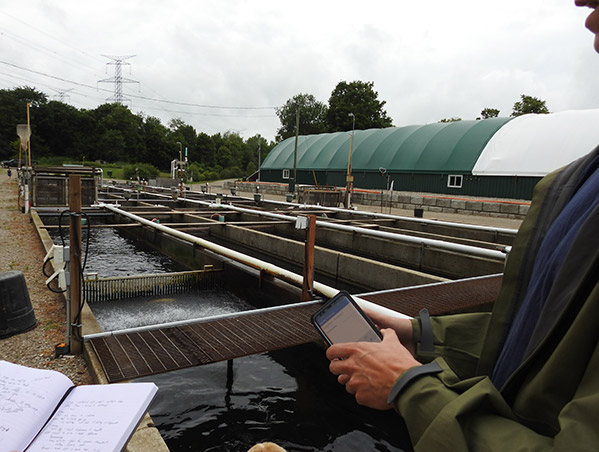
Source: ACER Consulting Ltd.
Cedar Crest has recently fully adopted cloud-based electronic management records to monitor health, mortality, drug use, and productivity on their farm. Keeping accurate records is very important for the farm.
Benefits of record keeping include the ability to:
- Understand the “who, what, when, where, and why” of disease on the farm
- This helps management to promptly identify and address health issues that arise
- Evaluate the impact that management changes have on fish health and production
- Formulate realistic goals for improvement
- Ensure the public is protected from drug or chemical residues in food
While electronic records work on Cedar Crest, it may not fit with some operations. RJ mentioned that they still keep physical records, especially when it comes to treatment.
Below is an example of a treatment board on their farm:
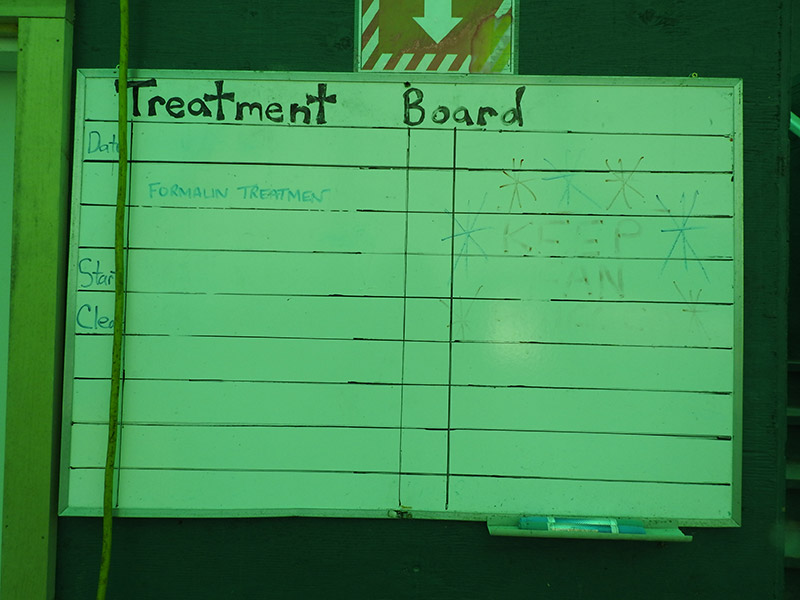
Source: ACER Consulting Ltd.
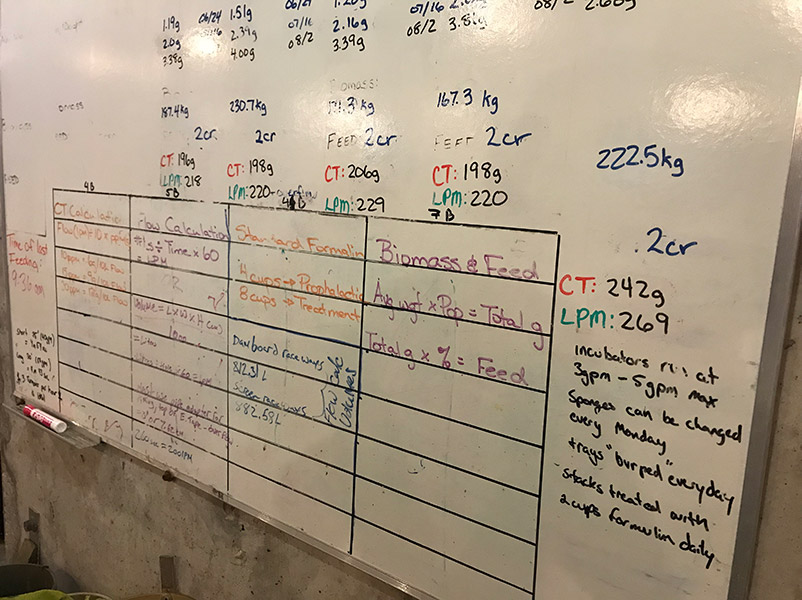
Source: ACER Consulting Ltd.
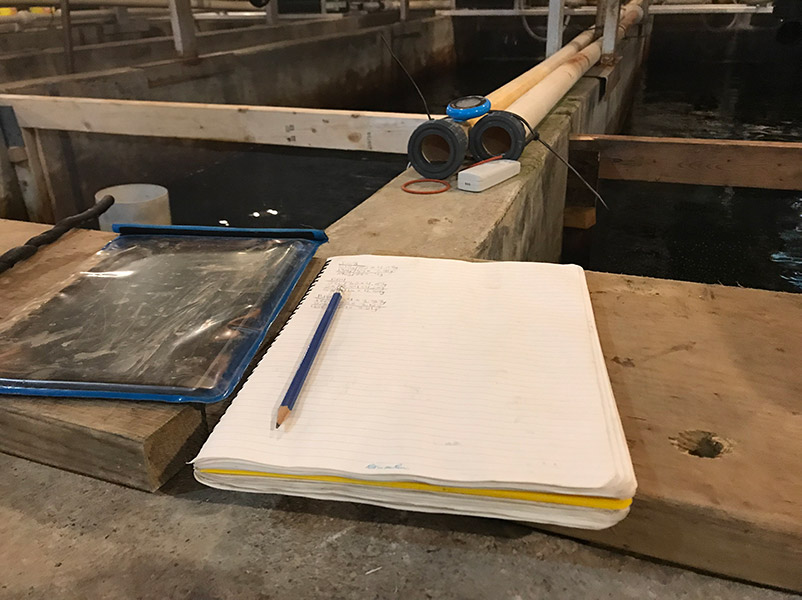
Source: ACER Consulting Ltd.
One important point that Arlen and RJ stressed was that everyone on the farm needs to play their part in accurately and consistently recording information.
Stewards of Antimicrobial Use
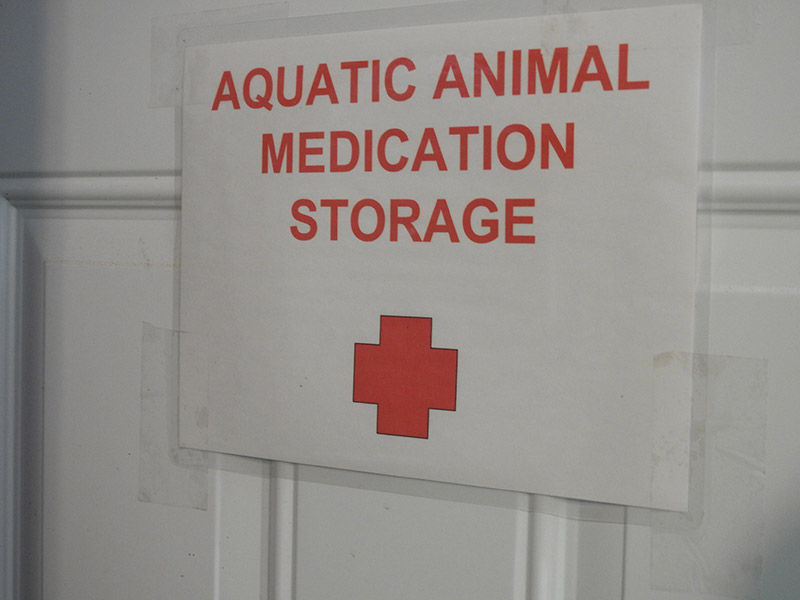
Source: ACER Consulting Ltd.
Antimicrobial stewardship (AMS) is founded on the 5 Rs — responsibility, refinement, reduction, replacement, and review. A focus on preventative fish health practices will reduce the need for treatments with antimicrobial medications. Keeping excellent treatment records ensures that everyone on the farm is taking responsibility for fish health. Records also enable review, benchmarking, goal-setting, and improvement.
What we haven’t mentioned much of yet is how Cedar Crest uses antimicrobial products. Arlen and RJ are focused on disease prevention and proactive management. With all food animals, diseases do occur, which is why early detection and treatment is vitally important for the farm.
Through consultation with fish health professionals and a lot of their own research, Arlen and RJ have created a wealth of information on fish diseases and treatment protocols in their Fish Health Management Plan document. The plan goes into specific detail on the outward signs that fish may exhibit with common diseases. After the disease has been identified, there are explicit step-by-step instructions on how to treat an affected group of fish, including dosages, durations, who is responsible, and drug residue avoidance information. These protocols ensure consistency over time. That all fish receive the right medication, at the proper dose, at the right time, for the correct duration. Coupled with excellent records, Arlen and RJ will know if a given intervention is having its desired effects. If not, they can re-evaluate their therapy with their fish health team.
